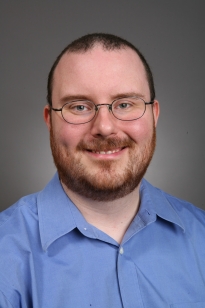
The GNU Lesser General Public License (LGPL) is a free-software license published by the Free Software Foundation (FSF). The license allows developers and companies to use and integrate a software component released under the LGPL into their own software without being required by the terms of a strong copyleft license to release the source code of their own components. However, any developer who modifies an LGPL-covered component is required to make their modified version available under the same LGPL license. For proprietary software, code under the LGPL is usually used in the form of a shared library, so that there is a clear separation between the proprietary and LGPL components. The LGPL is primarily used for software libraries, although it is also used by some stand-alone applications.

SCO Group, Inc. v. International Business Machines Corp., commonly abbreviated as SCO v. IBM, is a civil lawsuit in the United States District Court of Utah. The SCO Group asserted that there are legal uncertainties regarding the use of the Linux operating system due to alleged violations of IBM's Unix licenses in the development of Linux code at IBM. The lawsuit was filed in 2003, it has lingered on through the bankruptcy of SCO Group and the adverse result in SCO v. Novell, and was reopened for continued litigation by order of a new judge on June 14, 2013. Pursuant to the court order reopening the case, an IBM Motion for Summary Judgment was filed based upon the results of the Novell decision. On December 15, 2014, the judge granted most of IBM's motion, thereby narrowing the scope of the case, which remained open. On March 1, 2016, following a ruling against the last remaining claims, the judge dismissed SCO's suit against IBM with prejudice. SCO filed an appeal later that month. In February 2018, as a result of the appeal and the case being partially remanded to the circuit court, the parties restated their remaining claims and provided a plan to move toward final judgement.

Eben Moglen is an American legal scholar who is professor of law and legal history at Columbia University, and is the founder, Director-Counsel and Chairman of Software Freedom Law Center.

BusyBox is a software suite that provides several Unix utilities in a single executable file. It runs in a variety of POSIX environments such as Linux, Android, and FreeBSD, although many of the tools it provides are designed to work with interfaces provided by the Linux kernel. It was specifically created for embedded operating systems with very limited resources. The authors dubbed it "The Swiss Army knife of Embedded Linux", as the single executable replaces basic functions of more than 300 common commands. It is released as free software under the terms of the GNU General Public License v2, after controversially deciding not to move to version 3.
The Common Development and Distribution License (CDDL) is a free and open-source software license, produced by Sun Microsystems, based on the Mozilla Public License (MPL). Files licensed under the CDDL can be combined with files licensed under other licenses, whether open source or proprietary. In 2005 the Open Source Initiative approved the license. The Free Software Foundation (FSF) considers it a free software license, but one which is incompatible with the GNU General Public License (GPL).

Bradley M. Kuhn is a free software activist from the United States.
Tivoization is the practice of designing hardware that incorporates software under the terms of a copyleft software license like the GNU General Public License, but uses hardware restrictions or digital rights management (DRM) to prevent users from running modified versions of the software on that hardware. Richard Stallman of the Free Software Foundation (FSF) coined the term in reference to TiVo's use of GNU GPL licensed software on the TiVo brand digital video recorders (DVR), which actively block modified software by design. Stallman believes this practice denies users some of the freedom that the GNU GPL was designed to protect. The FSF refers to tivoized hardware as "proprietary tyrants".
This comparison only covers software licenses which have a linked Wikipedia article for details and which are approved by at least one of the following expert groups: the Free Software Foundation, the Open Source Initiative, the Debian Project and the Fedora Project. For a list of licenses not specifically intended for software, see List of free-content licences.
The Affero General Public License is a free software license. The first version of the Affero General Public License (AGPLv1), was published by Affero, Inc. in March 2002, and based on the GNU General Public License, version 2 (GPLv2). The second version (AGPLv2) was published in November 2007, as a transitional license to allow an upgrade path from AGPLv1 to the GNU Affero General Public License.
Monsoon Multimedia was a company that manufactured, developed and sold video streaming and place-shifting devices that allowed consumers to view and control live television on PCs connected to a local (home) network or remotely from a broadband-connected PC or mobile phone. It was one of 5 major transformations initiated by Prabhat Jain, a Silicon Valley entrepreneur with 5 undergraduate and post graduate engineering degrees from Cal Berkeley and Univ of Vienna, Austria. On the even of Cisco acquiring Monsoon in 2017, EchoStar, the new parent of Sling sued Monsoon for patent infringement, having obtained confidential information about the date of the acquisition by Cisco from a Monsoon employee under murky circumstances. Monsoon settled the lawsuit by agreeing not to sell its products in the USA simply because it did not have the legal funds to fight mighty Echostar's legal maneuvers. EchoStar thus successfully removed its only competitor from the market place. This meant Monsoon's death knell.
License compatibility is a legal framework that allows for pieces of software with different software licenses to be distributed together. The need for such a framework arises because the different licenses can contain contradictory requirements, rendering it impossible to legally combine source code from separately-licensed software in order to create and publish a new program. Proprietary licenses are generally program-specific and incompatible; authors must negotiate to combine code. Copyleft licenses are commonly deliberately incompatible with proprietary licenses, in order to prevent copyleft software from being re-licensed under a proprietary license, turning it into proprietary software. Many copyleft licenses explicitly allow relicensing under some other copyleft licenses. Permissive licenses are compatible with everything, including proprietary licenses; there is thus no guarantee that all derived works will remain under a permissive license.

Richard Fontana is a lawyer in the United States who is particularly known for his work in the area of open source and free software. Fontana works at Red Hat. Before Red Hat he was counsel at the Software Freedom Law Center (SFLC). In 2012 Fontana began drafting copyleft-next, a modification of the GNU General Public License, version 3 (GPLv3). While at SFLC, Fontana was one of the three principal authors, along with Richard Stallman and Eben Moglen, of the GPLv3, the GNU Lesser General Public License, version 3 (LGPLv3), and the GNU Affero General Public License. He is currently a member-elected director of the Open Source Initiative.

A free-software license is a notice that grants the recipient of a piece of software extensive rights to modify and redistribute that software. These actions are usually prohibited by copyright law, but the rights-holder of a piece of software can remove these restrictions by accompanying the software with a software license which grants the recipient these rights. Software using such a license is free software as conferred by the copyright holder. Free-software licenses are applied to software in source code and also binary object-code form, as the copyright law recognizes both forms.

The GNU General Public License is a series of widely used free software licenses that guarantee end users the four freedoms to run, study, share, and modify the software. The license was the first copyleft for general use and was originally written by the founder of the Free Software Foundation (FSF), Richard Stallman, for the GNU Project. The license grants the recipients of a computer program the rights of the Free Software Definition. These GPL series are all copyleft licenses, which means that any derivative work must be distributed under the same or equivalent license terms. It is more restrictive than the Lesser General Public License and even further distinct from the more widely used permissive software licenses BSD, MIT, and Apache.
The Free Software Foundation (FSF) is a 501(c)(3) non-profit organization founded by Richard Stallman on October 4, 1985, to support the free software movement, with the organization's preference for software being distributed under copyleft terms, such as with its own GNU General Public License. The FSF was incorporated in Boston, Massachusetts, US, where it is also based.
Free Software Foundation, Inc. v. Cisco Systems, Inc. was a lawsuit initiated by the Free Software Foundation (FSF) against Cisco Systems on December 11, 2008, in the United States District Court for the Southern District of New York. The FSF claimed that various products sold by Cisco under the Linksys brand had violated the licensing terms of many programs on which FSF held copyright, including GCC, GNU Binutils, and the GNU C Library. Most of these programs were licensed under the GNU General Public License, and a few under the GNU Lesser General Public License. The Software Freedom Law Center acted as the FSF's law firm in the case. The foundation asked the court to enjoin Cisco from further distributing Linksys firmware that contains FSF copyrighted code, and also asked for all profits that Cisco received "from its unlawful acts." Cisco stated that they were reviewing the issues in the suit, but they believe to be "substantially in compliance".
ExtremeXOS is the software or the network operating system used in newer Extreme Networks network switches. It is Extreme Networks second generation operating system after the VxWorks based ExtremeWare operating system.

Software Freedom Conservancy, Inc. is an organization that provides a non-profit home and infrastructure support for free and open source software projects. The organization was established in 2006, and as of June 2022, had over 40 member projects.
Software relicensing is applied in open-source software development when software licenses of software modules are incompatible and are required to be compatible for a greater combined work. Licenses applied to software as copyrightable works, in source code as binary form, can contain contradictory clauses. These requirements can make it impossible to combine source code or content of several software works to create a new combined one.
Open source license litigation involves lawsuits surrounding open-source licensed software. Many of the legal rights of open source software licensors enforceable against users violating licensing agreements are untested by the U.S. legal system. Free and open source software (FOSS) is distributed under a variety of free-software licenses, which are unique among other software licenses. Legal action against open source licenses involves questions about their validity and enforceability.









